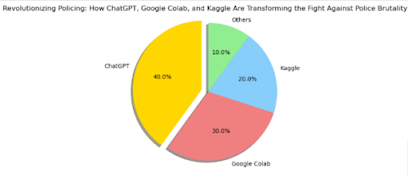Cops Raid Innocent Disabled Veteran's Home and Murder Him While He Slept — Lawsuit
When the SWAT squad of the St. Louis Metropolitan Police Department conducted a no-knock raid on the house of Don Clark Sr., a 63-year-old Army veteran, in February 2017, Clark was killed. Police immediately claimed that Clark had shot at them, and a subsequent search of the residence uncovered two pistols and a large quantity of drugs. Clark's family is suing four years later, saying he was unarmed and sleeping peacefully in his bed. Jerryl Christmas has been retained by the Clark family to defend them in legal action. The Free Thought Project interviewed Christmas to get a better understanding of how Mr. Clark was shot and murdered and made to seem to be a violent drug dealer.
We hope that the lawsuit will allow us to fill out the story of how these drugs got to Don's home, but we do not trust the police narrative in this instance. Mr. Clark had previously served as a paratrooper and was wounded during his duty, forcing him to walk with a cane and walker. "He was diabetic, had poor vision and hearing,"
We questioned Christmas about the two guns and narcotics allegedly discovered on-scene by police.
"Whoever controls the crime scene controls the narrative," Christmas said, adding that he is adamant about uncovering the truth about Mr. Clark's assassination. Neither Clark's family nor Mr. Christmas thought Clark had firearms or fired on police. As a consequence of the lawsuit, the family and their attorney will be allowed to begin the discovery process and identify any weapons or narcotics purportedly found by police after the shot that killed Clark in his bed.
The Washington Post reports:
Sam Dotson, then-Chief of the St. Louis Police Department, said that the SWAT squad knocked on the door and identified themselves as police. He then said that officers responded to a gunshot fired from inside Clark's residence... The manner in which St. Louis police acquired the no-knock order to search Clark's home late on Feb. 21, 2017, is crucial to his family's complaint, which alleges that Detective Thomas Strode used false information and "lied" to gain permission to enter the residence. To get a no-knock search warrant, a judge must often approve the process based on the probable cause presented by officers. Mr. Clark's officer-involved shooting death will be thoroughly examined to determine whether detectives acted on good or poor information.
The family believes the investigator, Thomas Strode, lied to get the no-knock search warrant. Clark's friends, family, and neighbors thought he was an innocent guy who fell victim to the St. Louis MPD's excessive enforcement operations.
The notion of police fabricating evidence to get a warrant is not implausible; it occurs often.
Mr. Clark was an upright man who had previously operated his own security business. Nonetheless, the handicapped veteran paratrooper and grandpa was brutally shot and portrayed as a dangerous drug dealer by authorities. The two pictures do not seem to match, and police have portrayed him in a very different light than his friends and family do.
Clark's brutal death was reported in the Washington Post as follows:
Clark informed his son he was looking forward to a nice night's sleep, but shortly after he slept off at around 8 p.m., 17 police officers smashed through his door and activated the diversionary device — without warning they were law enforcement and would enter
The complaint claims that one police officer, Nicholas Manasco, then "fired a torrent of rounds from an assault weapon." "At least nine bullets penetrated Mr. Clark's body, threatening to tear his forearm from his elbow joint."
Clark collapsed near his bed, face down. "The police made no attempt to stem the flow of blood," the complaint claims. "Mr. Clark attempted to talk, but all he managed was an incomprehensible mumble." Clark died shortly thereafter.
Clark's story seems to have an uncanny resemblance to the officer-involved shooting murders of Dennis Tuttle and Rhogena Nicholas by Houston police during a no-knock search of their home in 2019. Cops in Houston portrayed the pair as drug dealers who opened fire on the police, killing both of them and their dog. At the time, neighbors maintained that both Tuttle and Nicholas were devout Americans who had shown an unwavering support for law enforcement, noting that Tuttle was also a veteran. The following May, the case took a turn when the family hired a forensics expert to investigate the house and discovered no proof that the police encountered gunshots. Then, in a significant development in August 2019, the policeman who lied to get the warrant for the raid was charged with murder in the first degree, followed by many others. Then, in January of this year, a half-dozen more policemen were accused, with four facing the death penalty. Officer Steven Bryant, 47, was convicted as the first officer in the Tuttle and Nicholas case in June after pleading guilty to obstructing justice by fabricating documents justifying the fatal raid. For the time being, it is unclear if Clark's family will get justice for their loved one's officer-involved gunshot death. However, one thing is certain: they do not think the St. Louis police are telling the truth, and with the assistance of their attorney, they want to uncover the truth.




Comments
Post a Comment